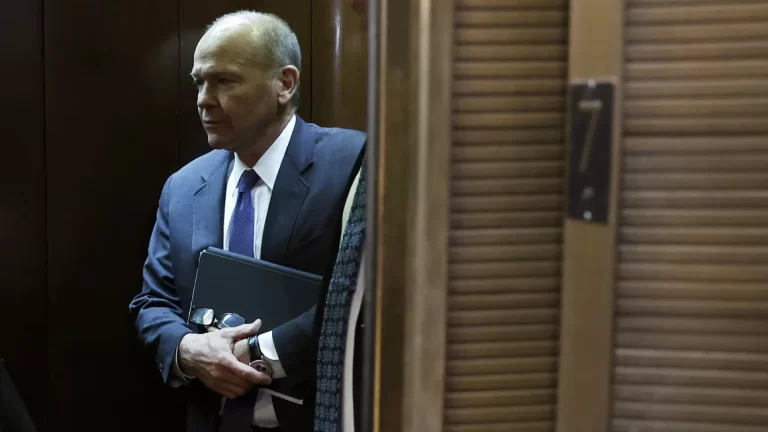Hardly a day has gone by in 2024 without a bad headline for Boeing, from life-threatening mid-flight crises up above to entrenched business debacles happening on the ground. So how does CEO Dave Calhoun still have a job?
“It’s become an extreme embarrassment,” Richard Aboulafia, a longtime aviation analyst, told me. “The board seems weirdly absentee, investors seem weirdly complacent, and the government doesn’t seem to have a mechanism for dealing with this.”
Let’s step back: Boeing’s (BA) stock has shed more than a quarter of its value this year, and it’s only March. One of its planes suffered a mid-flight blowout on January 5, prompting multiple federal investigations that increasingly suggest Boeing workers failed to put crucial bolts in place after making repairs. Last week, investigators called the company out for dragging its heels in response to their requests for key evidence.
Boeing said it is working closely with regulators’ investigations and has plans in place to improve safety measures at its production facilities.
“We will continue supporting this investigation in the transparent and proactive fashion we have supported all regulatory inquiries into this accident,” Boeing said in a statement.
Boeing’s 737 Max problems would be egregious enough on its own.
But wait, there’s more.
On Monday, a Boeing 787 Dreamliner flying from Australia to New Zealand plunged suddenly mid-flight, injuring 50 passengers before landing safely. On Tuesday, news began emerging that a Boeing whistleblower, John Barnett, died in an apparent suicide on the same day he was scheduled to give testimony about safety concerns he raised over the company’s safety protocols.
It’s not clear whether Boeing bears any responsibility in either case. The company said it was gathering information about what went wrong on the 787. And in response to its former employee’s death, the company said: “We are saddened by Mr. Barnett’s passing, and our thoughts are with his family and friends.”
If Boeing were any other company, its CEO would be out the door. But Dave Calhoun, Boeing’s chief executive since 2020, remains in his job, as does the entire C-suite at the time of this writing.
“It’s been three years of ‘there’s no way Calhoun can stay at the helm,’” said Aboulafia, managing director of the consulting firm AeroDynamic Advisory. “But he seems to be staying at the helm … I do not get it.”
Boeing actually raised Calhoun’s total compensation in 2022, to $22.5 million, despite problems with the 777 program and quality control issues with the 787 that forced regulators to halt the company’s deliveries. Calhoun’s 2023 compensation has not yet been announced — Boeing typically reveals that information in April.
To be fair to Calhoun, he took over a company in deep distress following two fatal 737 Max crashes that landed the crucial plane in a nearly two-year-long grounding and put the company in a yearslong crisis. And the plane maker’s problems didn’t start there: The 1997 merger with McDonnell Douglas is widely cited as Boeing’s poisoned chalice. It was after the merger that the bean-counter executives began taking over, gutting the joint, and putting accountants into roles once held by engineers. Maximizing profit took precedence over quality. In the short term, margins improved. But in the long term, Boeing lost the plot.
Executives at Boeing, starting in the mid-aughts, “identified an industry with tons of cash flow, high barriers to entry and only two players,” Aboulafia said, referring to Boeing’s European rival, Airbus. “It’s a recipe for getting away with bad things.”
Critics of the 737 Max crashes in 2018 and 2019 weren’t just a problem of flawed design but also deeply flawed management that eroded Boeing’s corporate culture.
Boeing hired Calhoun to right the ship. But, under his oversight, Boeing hasn’t been able to shake its enormous problems. This year’s mounting concerns prove Calhoun’s efforts haven’t resulted in sufficient quality and safety improvements. CNN reached out to Boeing for comment.
“If you ask me, the first thing that needs to happen for Boeing to gain trust is to basically fire the entire C suite,” Gad Allon, a professor at the University of Pennsylvania’s Wharton School of Business, told me Tuesday. “I know that will not happen, but … there is not a single person that has a C in front of their title that is not responsible for what we’re seeing now.”
But Allon isn’t holding his breath for Boeing’s board of directors to act.
“If there is a functioning board, that’s what should happen.”
— CutC by cnn.com


